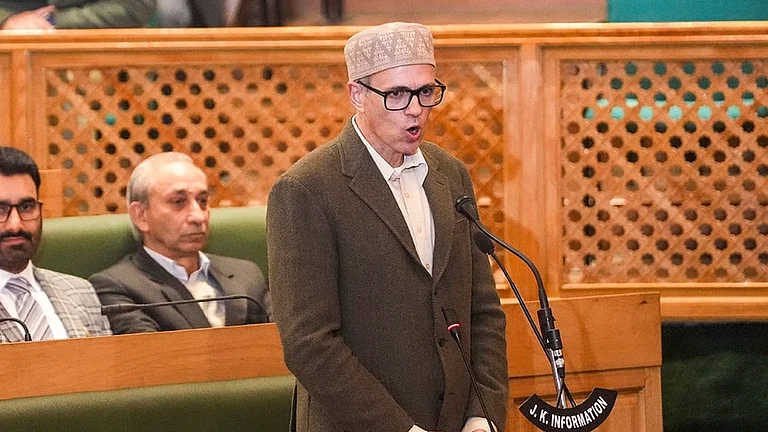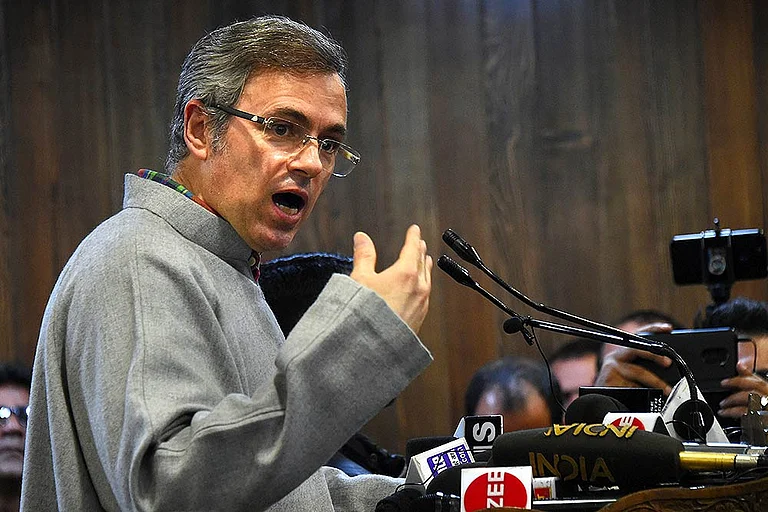Political leaders in Jammu and Kashmir have welcomed the Election Commission's decision to hold assembly polls in the region. The elections will take place in three phases on September 18, 25, and October 1, and votes will be counted on October 4.
National Conference vice-president Omar Abdullah described the move as "better late than never", stating that the people of J&K had been waiting for this moment for a long time.
The former Jammu and Kashmir chief minister said it is perhaps for the first time after the 1987-88 polls, that the assembly elections in Jammu and Kashmir are being held in a short time and in just a few phases.
"It obviously will be a new experiment for the political parties. But as far as our party is concerned, the NC was prepared for this day and will soon start the electioneering," he added.
Abdullah said Chief Election Commissioner Rajiv Kumar has made a thrust on conducting free and fair polls in Jammu and Kashmir and called on the poll body to take notice of the massive transfers in the police and civil administration in the Union Territory in the last 24 hours.
"We have doubts that this government is helping the BJP and its B, C and D teams. The ECI should immediately take notice and examine them and stop those transfers which are outside their guidelines," he said.
PDP chief Mehbooba Mufti’s daughter Iltija Mufti said, "We welcome this move, but it should've happened six years ago. The last elected government of Jammu and Kashmir collapsed in 2018. So, why did it take them so long? Yes, we welcome this move, but the government has not done a favour on us, and elections are an integral part of democracy.”
Apni Party chief Altaf Bukhari welcomed the announcement quoting an Urdu couplet. "Badi dair kardi mehrban aate aate (you took a long time to come, kind one)", Bukhari said adding “we will have a people's government Inshallah (God willing) by October 5.”
Ghulam Nabi Azad, Chairman of the Democratic Progressive Azad Party, welcomed the election announcement and thanked the government and Election Commission. “We hope it will be a free and fair election. We also hope the security of voters, candidates and party leaders will be taken care of...Right now what is important is that people are getting a chance to elect their representative after nearly 10 years," he added.
National Conference President Farooq Abdullah announced his intention to contest the elections, while his son Omar would not. “When the state status is granted then I will step down and Omar Abdullah will contest from that seat," he said.
J&K Assembly Election After 10 Years
The decision to hold assembly elections in Jammu and Kashmir comes after repeated calls from regional political parties to conduct polls at the earliest, following the dissolution of the elected government in 2018. The last assembly election in the region was held in 2014.
In 2014, Jammu and Kashmir, then a state, conducted elections across 87 constituencies. The elections were held in five phases from November 25 to December 20. The results led to an unusual coalition government formation, with the Bharatiya Janata Party (BJP) aligning with the People's Democratic Party (PDP).
Previously, Jammu and Kashmir had 87 constituencies. The new arrangement includes 90 constituencies, with 47 in the Kashmir region and 43 in the Jammu region. Additionally, 24 seats are reserved for Pakistan-administered Kashmir.


























